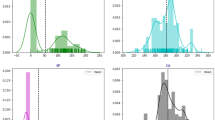Abstract
One of the most significant parameters in concrete design is compressive strength. Time and money could be saved if the compressive strength of concrete is accurately measured. In this study, two machine learning models, namely, boosted decision tree regression (BDTR) and support vector machine (SVM), were developed to predict concrete compressive strength (CCS) using a complete dataset through the previous scientific studies. Eight concrete mixture parameters were used as the input dataset. Four statistical indices, namely the coefficient of determination (R2) and root mean square error (RMSE), mean absolute error (MAE), and RMSE-Standard Deviation Ratio (RSR), were used to illustrate the efficiency of the proposed models. The results show that the BDTR model outperformed SVM model with the overall result of R2=0.86 and RMSE=6.19 and MAE=4.91 and RSR=0.37, respectively. The results of this study suggest that the compressive strength of high-performance concrete (HPC) can be accurately calculated using the proposed BDTR model.







Similar content being viewed by others
Data availability
Not applicable.
Code availability
Not applicable.
Abbreviations
- BDTR:
-
Boosted decision tree regression
- R2 :
-
Coefficient of determination
- RMSE:
-
Root mean square error
- HPC:
-
High-performance concrete
- CCS:
-
Concrete compressive strength
- SFS:
-
Sequential feature selection
- NID:
-
Neural interpretation diagram
- ANN:
-
Artificial neural network
- UHPC:
-
Ultra-high performance concrete
- SVM:
-
Support vector machine
- DT:
-
Decision tree
- ANFIS:
-
Adaptive neuro-fuzzy inference system
- GPC:
-
Geopolymer concrete
- AI:
-
Artificial intelligence
- BRT:
-
Boosted regression trees
- MART:
-
Multiple additive regression
References
Abuodeh OR, Abdalla JA, Hawileh RA (2020) Assessment of compressive strength of Ultra-high Performance Concrete using deep machine learning techniques. Appl Soft Comput J 95:106552. https://doi.org/10.1016/j.asoc.2020.106552
Al-Shamiri AK, Kim JH, Yuan TF, Yoon YS (2019) Modeling the compressive strength of high-strength concrete: an extreme learning approach. Constr Build Mater 208:204–219. https://doi.org/10.1016/j.conbuildmat.2019.02.165
Al-Shamiri AK, Yuan TF, Kim JH (2020) Non-tuned machine learning approach for predicting the compressive strength of high-performance concrete. Materials (Basel) 13:1–15. https://doi.org/10.3390/ma13051023
Aprianti E, Shafigh P, Bahri S, Farahani JN (2015) Supplementary cementitious materials origin from agricultural wastes - a review. Constr Build Mater 74:176–187
Ben-Hur A, Weston J (2010) A user’s guide to support vector machines. Methods Mol Biol. https://doi.org/10.1007/978-1-60327-241-4_13
Borhana AA, Kamal DDBM, Latif SD, et al (2020) Fault detection of bearing using support vector machine-SVM. In: 2020 8th International Conference on Information Technology and Multimedia (ICIMU). pp 309–315
Chopra P, Sharma RK, Kumar M, Chopra T (2018) Comparison of machine learning techniques for the prediction of compressive strength of concrete. Adv Civ Eng 2018:1–9. https://doi.org/10.1155/2018/5481705
Chou J-S, Chiu C-K, Farfoura M, Al-Taharwa I (2011) Optimizing the prediction accuracy of concrete compressive strength based on a comparison of data-mining techniques. J Comput Civ Eng 25:242–253. https://doi.org/10.1061/(asce)cp.1943-5487.0000088
Deng F, He Y, Zhou S, Yu Y, Cheng H, Wu X (2018) Compressive strength prediction of recycled concrete based on deep learning. Constr Build Mater 175:562–569. https://doi.org/10.1016/j.conbuildmat.2018.04.169
Dutta S, Samui P, Kim D (2018) Comparison of machine learning techniques to predict compressive strength of concrete. Comput Concr. https://doi.org/10.12989/cac.2018.21.4.463
Ehteram M, Ahmed AN, Latif SD, Huang YF, Alizamir M, Kisi O, Mert C, el-Shafie A (2020a) Design of a hybrid ANN multi-objective whale algorithm for suspended sediment load prediction. Environ Sci Pollut Res 28:1596–1611. https://doi.org/10.1007/s11356-020-10421-y
Ehteram M, Ahmed AN, Ling L, Fai CM, Latif SD, Afan HA, Banadkooki FB, el-Shafie A (2020b) Pipeline scour rates prediction-based model utilizing a multilayer perceptron-colliding body algorithm. Water (Switzerland) 12. https://doi.org/10.3390/w12030902
Ehteram M, Yenn F, Najah A et al (2020c) Performance improvement for infiltration rate prediction using hybridized Adaptive Neuro-Fuzzy Inferences System ( ANFIS ) with optimization algorithms. Ain Shams Eng J 11:12–1676. https://doi.org/10.1016/j.asej.2020.08.019
Feng DC, Liu ZT, Wang XD, Chen Y, Chang JQ, Wei DF, Jiang ZM (2020) Machine learning-based compressive strength prediction for concrete: an adaptive boosting approach. Constr Build Mater 230:117000. https://doi.org/10.1016/j.conbuildmat.2019.117000
Gonzalez-Corominas A, Etxeberria M (2016) Effects of using recycled concrete aggregates on the shrinkage of high performance concrete. Constr Build Mater 115:32–41. https://doi.org/10.1016/j.conbuildmat.2016.04.031
Gupta R, Kewalramani MA, Goel A (2006) Prediction of concrete strength using neural-expert system. J Mater Civ Eng 18:462–466. https://doi.org/10.1061/(asce)0899-1561(2006)18:3(462
Hoang ND, Pham AD, Nguyen QL, Pham QN (2016) Estimating compressive strength of high performance concrete with Gaussian process regression model. Adv Civ Eng 2016:1–8. https://doi.org/10.1155/2016/2861380
Jumin E, Zaini N, Ahmed AN, Abdullah S, Ismail M, Sherif M, Sefelnasr A, el-Shafie A (2020) Machine learning versus linear regression modelling approach for accurate ozone concentrations prediction. Eng Appl Comput Fluid Mech 14:713–725. https://doi.org/10.1080/19942060.2020.1758792
Jumin E, Basaruddin FB, Yusoff YBM, Latif SD, Ahmed AN (2021) Solar radiation prediction using boosted decision tree regression model: a case study in Malaysia. Environ Sci Pollut Res 28:26571–26583. https://doi.org/10.1007/s11356-021-12435-6
Kaloop MR, Kumar D, Samui P, Hu JW, Kim D (2020) Compressive strength prediction of high-performance concrete using gradient tree boosting machine. Constr Build Mater 264:120198. https://doi.org/10.1016/j.conbuildmat.2020.120198
Kasperkiewicz J, Racz J, Dubrawski A (1995) HPC strength prediction using artificial neural network. J Comput Civ Eng 9:279–284. https://doi.org/10.1061/(asce)0887-3801(1995)9:4(279
Kylili A, Fokaides PA (2017) Policy trends for the sustainability assessment of construction materials: A review. Sustain Cities Soc. https://doi.org/10.1016/j.scs.2017.08.013
Lai V, Ahmed AN, Malek MA, Abdulmohsin Afan H, Ibrahim RK, el-Shafie A, el-Shafie A (2019) Modeling the nonlinearity of sea level oscillations in the Malaysian coastal areas using machine learning algorithms. Sustain 11. https://doi.org/10.3390/su11174643
Lai V, Malek MA, Abdullah S et al (2020) Time-series prediction of sea level change in the east coast of Peninsular Malaysia from the supervised learning approach. Int J Des Nat Ecodynamics. https://doi.org/10.18280/ijdne.150314
Latif SD (2021) Concrete compressive strength prediction modeling utilizing deep learning long short-term memory algorithm for a sustainable environment. Environ Sci Pollut Res 28:30294–30302. https://doi.org/10.1007/s11356-021-12877-y
Latif SD, Ahmed AN (2021) Application of deep learning method for daily streamflow time-series prediction : a case study of the Kowmung River at Cedar Ford , Australia. Int J Sustain Dev Plan 16:497–501. https://doi.org/10.18280/ijsdp.160310
Latif SD, Ahmed AN, Sherif M et al (2020a) Reservoir water balance simulation model utilizing machine learning algorithm. Alex Eng J 60:1365–1378. https://doi.org/10.1016/j.aej.2020.10.057
Latif SD, Azmi MSBN, Ahmed AN et al (2020b) Application of artificial neural network for forecasting nitrate concentration as a water quality parameter: a case study of Feitsui Reservoir, Taiwan. Int J Des Nat Ecodynamics. https://doi.org/10.18280/ijdne.150505
Latif SD, Usman F, Pirot BM (2020c) Implementation of value engineering in optimizing project cost for sustainable energy infrastructure asset development. Int J Sustain Dev Plan 15:1045–1057. https://doi.org/10.18280/ijsdp.150709
Latif SD, Ahmed AN, Sathiamurthy E, Huang YF, el-Shafie A (2021a) Evaluation of deep learning algorithm for inflow forecasting : a case study of Durian Tunggal Reservoir, Peninsular Malaysia. Nat Hazards. https://doi.org/10.1007/s11069-021-04839-x
Latif SD, Birima AH, Najah A et al (2021b) Development of prediction model for phosphate in reservoir water system based machine learning algorithms. Ain Shams Eng J. https://doi.org/10.1016/j.asej.2021.06.009
Latif SD, Marhain S, Hossain S et al (2021c) Optimizing the operation release policy using charged system search algorithm : a case study of Klang Gates Dam , Malaysia. Sustain 13:19. https://doi.org/10.3390/su13115900
Ling H, Qian C, Kang W, Liang C, Chen H (2019) Combination of Support Vector Machine and K-Fold cross validation to predict compressive strength of concrete in marine environment. Constr Build Mater 206:355–363. https://doi.org/10.1016/j.conbuildmat.2019.02.071
Mirzahosseini M, Jiao P, Barri K et al (2019) New machine learning prediction models for compressive strength of concrete modified with glass cullet. Eng Comput (Swansea, Wales). https://doi.org/10.1108/EC-08-2018-0348
Naderpour H, Rafiean AH, Fakharian P (2018) Compressive strength prediction of environmentally friendly concrete using artificial neural networks. J Build Eng 16:213–219. https://doi.org/10.1016/j.jobe.2018.01.007
Najah A, Teo FY, Chow MF, Huang YF, Latif SD, Abdullah S, Ismail M, el-Shafie A (2021) Surface water quality status and prediction during movement control operation order under COVID-19 pandemic: case studies in Malaysia. Int J Environ Sci Technol 18:1009–1018. https://doi.org/10.1007/s13762-021-03139-y
Parsaie A, Haghiabi AH, Latif SD (2021) Predictive modelling of piezometric head and seepage discharge in earth dam using soft computational models. Environ Sci Pollut Res. https://doi.org/10.1007/s11356-021-15029-4
Shaqadan A (2020) Prediction of concrete strength using support vector machines algorithm. Mater Sci Forum. https://doi.org/10.4028/www.scientific.net/MSF.986.9
Vakharia V, Gujar R (2019) Prediction of compressive strength and portland cement composition using cross-validation and feature ranking techniques. Constr Build Mater 225:292–301. https://doi.org/10.1016/j.conbuildmat.2019.07.224
Van Dao D, Ly HB, Trinh SH et al (2019) Artificial intelligence approaches for prediction of compressive strength of geopolymer concrete. Materials (Basel) 12. https://doi.org/10.3390/ma12060983
Wang D, Ju Y, Shen H, Xu L (2019) Mechanical properties of high performance concrete reinforced with basalt fiber and polypropylene fiber. Constr Build Mater 197:464–473. https://doi.org/10.1016/j.conbuildmat.2018.11.181
Yaseen ZM, Deo RC, Hilal A, Abd AM, Bueno LC, Salcedo-Sanz S, Nehdi ML (2018) Predicting compressive strength of lightweight foamed concrete using extreme learning machine model. Adv Eng Softw 115:112–125. https://doi.org/10.1016/j.advengsoft.2017.09.004
Young BA, Hall A, Pilon L, Gupta P, Sant G (2019) Can the compressive strength of concrete be estimated from knowledge of the mixture proportions?: New insights from statistical analysis and machine learning methods. Cem Concr Res 115:379–388. https://doi.org/10.1016/j.cemconres.2018.09.006
Zhong R, Wille K (2015) Material design and characterization of high performance pervious concrete. Constr Build Mater 98:51–60. https://doi.org/10.1016/j.conbuildmat.2015.08.027
Zhong Y, Wu P (2015) Economic sustainability, environmental sustainability and constructability indicators related to concrete- and steel-projects. J Clean Prod 108:748–756. https://doi.org/10.1016/j.jclepro.2015.05.095
Acknowledgements
The author would like to thank Prof. I-Cheng Yeh for providing the data set online.
Author information
Authors and Affiliations
Contributions
Writing original draft, methodology, and analysis: Sarmad Dashti Latif.
Corresponding author
Ethics declarations
Ethics approval
Not applicable.
Consent to participate
Not applicable.
Consent for publication
Not applicable.
Conflict of interest
The author declares no competing interests.
Additional information
Responsible Editor: Philippe Garrigues
Publisher’s note
Springer Nature remains neutral with regard to jurisdictional claims in published maps and institutional affiliations.
Rights and permissions
About this article
Cite this article
Latif, .D. Developing a boosted decision tree regression prediction model as a sustainable tool for compressive strength of environmentally friendly concrete. Environ Sci Pollut Res 28, 65935–65944 (2021). https://doi.org/10.1007/s11356-021-15662-z
Received:
Accepted:
Published:
Issue Date:
DOI: https://doi.org/10.1007/s11356-021-15662-z




